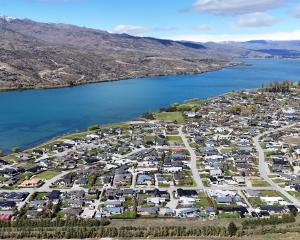
Fish & Game had appealed a consent issued to KCL by the Otago Regional Council (ORC) last year, and been in mediation talks with KCL since last October.
KCL director Hamish McKenzie said last month KCL was close to securing a new global consent for its 15 users, and Mr Watson subsequently said KCL and Fish & Game had reached "broad agreement" and were working through final details.
Mr Watson said if everything went well, hopefully, there would be no need for the matter to proceed to the Environment Court.
But he also reiterated Fish & Game’s interest was in restoring the flow to "an historically over-allocated catchment".
He said comments from Mr McKenzie at last month’s Irrigation New Zealand conference in Alexandra gave "the wrong message".
During his presentation to the conference, Mr McKenzie estimated the consent process had cost the group about $600,000.
When asked during a subsequent question and answer session what the group would do if it had its time again and could do anything differently, he joked.
"Give Fish & Game $600,000 and say ‘sign here’."
Mr Watson said the comment "misses the point".
He said Mr McKenzie’s comment implied that settling the consent matter was "about money", but that was not how Fish and Game felt.
"It’s about leaving enough water behind for the river to function. The more water left in the river, the healthier and more resilient the river will be."
Mr McKenzie said the new consent being sought was for 35 years and would "future-proof" water allocation in the Kye Burn catchment.
It would replace historical individual permits that expire in 2021, as do all other historical Central Otago water rights originally established through gold-mining rights in the 19th century.
Mr McKenzie said the 15 users in the Kyeburn group had decided on a "sharing regime" and, even though that had presented challenges, the collaborative approach was vital to success.
Mr Watson said other parties to the KCL consent application, such as the ORC, Department of Conservation and Ngai Tahu, still had to be further consulted before consent conditions were agreed and the consent granted.












